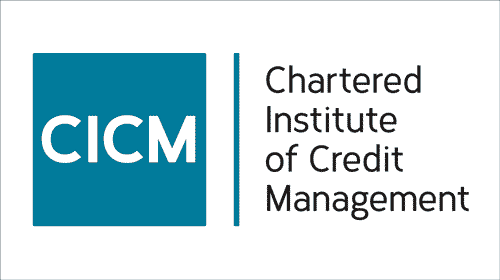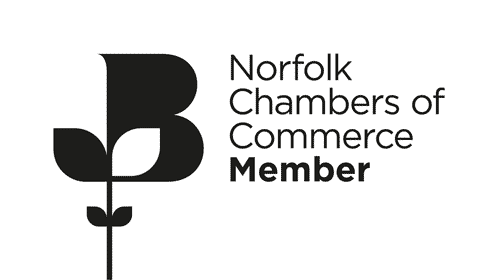The Importance of Credit Control For Small Businesses
Credit control is the system your business can implement to ensure credit is only given to customers who can pay you back on time. It’s crucial to get right, if you want to stay on top of your cash flow and reduce bad debts.
Good cashflow is crucial for business survival, and this is an even greater priority for smaller companies. In every stage of the business and customer relationship, businesses should be aware of their customers and make assessments, identifying credit-ready customers that are more likely to be able to pay you back, reducing any risk of non-payment.
Why Credit Control?
Credit control for small businesses is paramount in the current economic climate, especially, so you need to make sure as much of your money is within your company as possible.
On the customer side, this can help build trust, as you are putting your faith in them, and providing them with your product or service in a way that suits them specifically. As customisation helps to connect customers and products, customised payments through credit control help foster that customer relationship and could lead to countless benefits further down the line.
Benefits Of Good Credit Control
It is good business practice and ethical client behaviour to ensure your invoices are paid on time, too. Your suppliers trusted you to pay on time, so the best course of action is to plan those payments ahead of time to protect both your and your supplier’s cash flow. If you want to demonstrate a wider understanding and expression of corporate social responsibility, this is a great way to start!
Here are three quick-fire benefits to good credit control for small businesses:
- Safeguards your cash flow, and ensures you have enough capital to keep the ball rolling.
- Streamlines accounting process, as a simple, dedicated system frees up staff to work on other tasks.
- Helps with forecasting; keeping track of past debts is useful, but so are future goals and plans. Credit control allows for more efficient growth forecasting with less concern for bad debt build-up and non-payments.
How To Deal With Invoice Disputes
Naturally, as with anything involving transactions and movement of capital, there can be some challenges for both businesses and customers.
A tactful but firm securing of disputed invoice payments can be difficult, especially when trying to avoid conflicts.
However, a late disputed invoice must be dealt with consistently and as a high priority, setting a standard and benchmark for all current and future customers. With inaction, that non-payment will linger and your cashflow will be limited by that cash tied up in your client’s bank account, instead of yours.
Make sure to get this issue sorted as quickly as possible to avoid your positions becoming entrenched and the cash becoming stagnant.
Interest And Compensation
Late invoices give you the statutory right to add late payment interest and compensation charges. As a small business, it is more than likely that you will be working with a set flow of cash that you can’t afford to have tied up somewhere else, so charging for the impact of a halted cash flow is justifiable and can provide a good incentive to customers to make sure they pay you on time.
The customer’s best option is always paying their debt on time, as escalation can range from interest to a debt recovery service to a Court ruling, so make sure your clients understand that it is in everybody’s best interests to keep the capital flowing.
How To Go About Implementing Good Credit Control
First, make sure you learn all you can about your client. Your credit report can be filled out with an application form from the customer, and a credit check conducted by your business. Research their credit history, uncertainties that might pose a threat and increase risk, and see if there are any discussions or warnings about them in lateral supplier networks. If you can see no clear red flags, then you can hand over that contract with confidence. A low credit score doesn’t always indicate an untrustworthy client, however, so if you wish to err on the side of caution with certain customers, propose a partial or upfront payment as a compromise, before completing any work for them.
Agree upon realistic terms with your client. You need to have open communication and honesty about what both parties expect from your new working relationship, so make sure you are both on the same page with exactly what has been agreed and what that means for you both.
Promptly invoice your clients. If you expect your client to pay you on time, they need to be invoiced on time. A good way to avoid administrative delays is if you operate an automated system for invoicing clients, but whether you have this system or not, a late invoice means a late payment.
Make payment easy. Automate your payments by using a direct debit or a standing order. Hoping for cheques or a manual payment can sometimes be a fruitless endeavour, as your clients are busy too, and forgetting one invoice amongst many other moving pieces in their lives is certainly not unheard of. By using an online payment system, this entire issue can be completely bypassed, and in today’s day and age, this is a critical aspect of credit control.
Give them incentives. Reward your customers for paying early! Or even for those that consistently pay on time. Building and maintaining a strong relationship with customers is difficult, but rewarding, and encouraging repeat business through a stronger relationship is much easier when the client prioritises the business rewarding them with one that barely interacts. Thank them, make sure they know you appreciate their business, and if you’re able, try giving them a discount or an offer for next time!
All of this sounds great, of course: money in your pocket, happy customers, and a sparkling reputation, but as a small or medium sized business owner, you know that every hour counts, and the more admin your employees get saddled with, the less time they have to provide your service or sell your product.
Outsourcing Credit Control
So perhaps outsourcing a credit controller would suit you better, giving your company its time back, so you can seek out new business and keep clients coming back, rather than getting bogged down with invoice after invoice. You get the option of using the credit control service as and when you need it, rather than employing specialist staff which you might not have the position for.
How We Can Help
At Jacksons CRS, our credit control services can help you focus on running your business, while we become part of your team and look after your cash.
With incredibly experienced and knowledgeable staff, from numerous different industries, we are sure to be able to provide top of the range credit control for you and your business.
Get In Touch
When all is said and done, whether you are monitoring your credit and controlling it yourself, or you are outsourcing someone to do it for you, credit control for small businesses is crucial to business success, and vital for survival.
If you have any questions, or just want to have a chat about Credit Control, give us a call on 01603 319 034, and let’s see if we can help.



